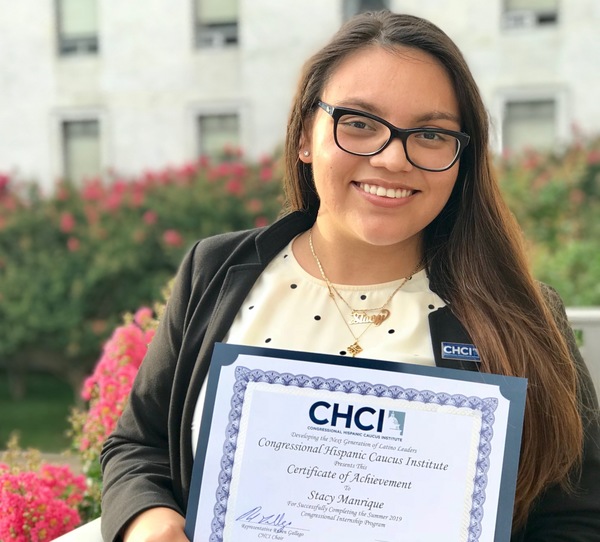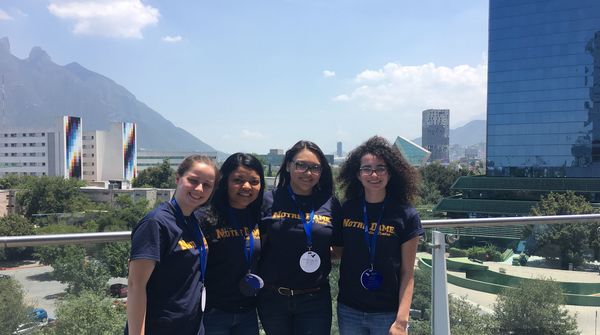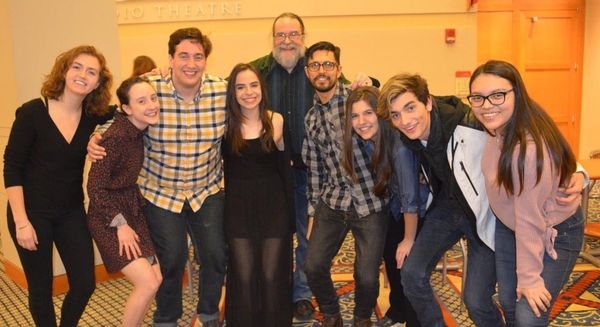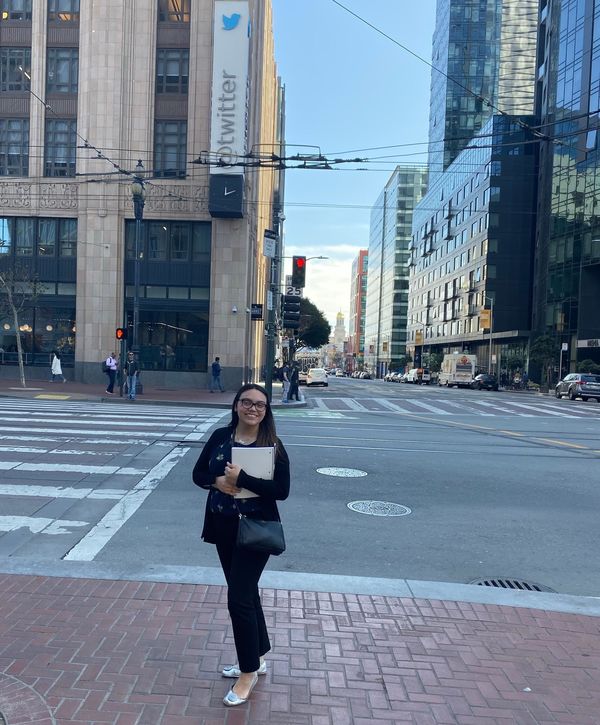When Stacy Manrique joined a group of Notre Dame students visiting Mexico’s prestigious Monterrey Institute of Technology two summers ago, it felt like a “homecoming.”
It wasn’t just the fact that Manrique is a native of Monterrey, having moved to the United States at eleven years of age. The then-rising junior was delighted to connect with students from “El Tec” — young women and men just as passionate about technology and social responsibility as she is. A bit of networking here and there could come in handy for the future.
Now a senior, Manrique looks back at this and the many other experiences she’s had through the Institute for Latino Studies as touchstones in her educational journey. A double major in Computer Science and Film Television and Theatre, with a minor in Latino Studies, Manrique is part of the first cohort of students in the ILS’s Latino Studies Scholars Program.

LSSP is a merit-based leadership scholarship for undergraduate students, nominated by the Office of Enrollment through the early and regular admissions process. The initiative seeks to attract and shape key leaders working to support and empower Latinx communities.
Students receive a $100,000 scholarship in addition to summer internship or research dollars. Manrique is one of four students in the inaugural cohort; overall there are nineteen students, including a record six in the most recent class.
The founder of this merit-based scholarship is Professor Luis R. Fraga, Director of the Institute for Latino Studies. Says Fraga,“This scholarship is the only one I know about that sees leadership on behalf of Latino communities as part of what Notre Dame values among its students. It is the only such program across the entire nation.

“As a result of generous support from our Advisory Council and other donors, our scholars don’t have to choose between career success and community impact: they can have both. Our scholarship reduces personal and parental costs to attend as well as the need to work while exploring the vast leadership experiences this campus offers.”
Being a Latina in STEM has been uniquely challenging, Manrique says. But the support of the ILS community, as well as mentors she’s met in internships and apprenticeships during these last four years, have shaped Manrique’s forward-looking and communal approach to life and career.
“It’s hard for me to find Latina mentors in STEM,” Manrique says. ”So why don’t I try to become a mentor? Opening doors for future generations so they don’t have to go through the same struggles I have had figuring the path out — this is what guides my goals and dreams.”
After her freshman year, Manrique did just that. As an Education Program Intern at UnidosUS, a national civil rights advocacy organization in Washington, D.C., Manrique contacted STEM organizations throughout the nation and helped organize a national conference to convene and provide resources to programs that target Latino/a/x populations.
“It’s been hard and at the same time inspiring,” she adds. She’s learned about a lot of resources out there that weren’t visible from her hometown of McAllen, TX.
Within computer science, her concentration is media computing, reflecting her interest in animation, visual effects and other aspects of the field. In the realm of Film, Television and Theater, she has worked as stage manager or assistant stage manager for productions of Oscar Wilde’s The Importance of Being Earnest and Karen Zacarías's Native Gardens.

“I started out with computer science at Notre Dame but I always had a passion for the arts,” she says. “Especially the combination between the technology needed and the visual arts, how one can use technology to enhance storytelling. Here, I’m able to combine what I really want.”
As part of Notre Dame’s Reilly Dual Degree program, Manrique is pursuing both majors by staying at ND for a fifth year. It’s this intersection between technology, public-facing service and storytelling that excites her. As graduation gets closer, she'll seek out a job that checks all the boxes, she says.
Whatever the future holds, Manrique continues to learn and enjoy the many opportunities ILS and Notre Dame offer her. As a rising junior, she worked a summer for the Congressional Hispanic Caucus Institute, after a very selective application process. The job entailed assisting her local congressman, Rep. Vicente Gonzalez of Texas, with media relations and other projects.
More recently, she partook in Notre Dame’s Silicon Valley Semester program, serving as a Communications and Marketing Associate at Catholic Charities’s San Francisco location. There, she bolstered the nonprofit’s social media audience engagement by 51%.

She’s also stayed busy on campus. Manrqiue has worked as a media assistant for the Grotto Network, helping put together short inspirational videos oriented towards Catholics. She’s also a research assistant for Film, Television and Theater Associate Professor Anne García-Romero, an ILS Faculty Fellow.
With García-Romero’s guidance, Manrique has delved into the work of Cuban-American playwright María Irene Fornés (1930-2018), considered the mother of Latinx playwriting. She's known for her award-winning, prolific production of nearly fifty plays after little formal training.
“Stacy has contributed a great deal to my research for the Fornés Institute, a group of artists and scholars who advocate for the Fornés legacy,” says García-Romero. “Combining her expertise in computer science and theater, Stacy has significantly assisted me in further developing digital resources that provide access to Fornés’s work as a playwright, director and educator.”
When it comes to coursework, Manrique fondly recalls several Latino Studies seminars that gave her a deeper understanding of her own background. She’s always identified with both the Mexican side of her mother and the Colombian roots of her father, but she wasn’t as familiar with the latter due to having grown up in Monterrey and the border city of McAllen.
Classes like Tim Matovina’s seminar on Catholicism and Latinx communities gave her a better idea of the breadth and diversity of Latinx people across the country. Combined with meeting people of all backgrounds during her various internships, she’s been better able to make sense of her unique cultural identity as a Latina in the U.S.
“I’ve come to appreciate the combination.” she says.“Being able to say ‘I’m a part of these two beautiful cultures.’ I still try to keep that alive.”